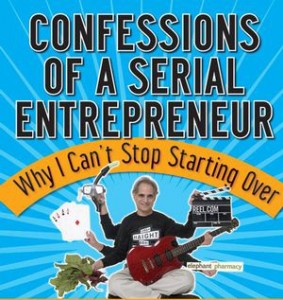How do others do it? How do they keep their belief in spite of resistance?
faith |fāth| noun
1. a complete trust or confidence in someone or something : based on belief rather than proof
I have been working on raising capital for a new business for the past few months. We have written a solid business plan. We have a strong team. We have developed a product with potential. We have customers who are willing to use their time and efforts to help us get to market. We have bootstrapped the company as far as we can without external financing, and yet raising the startup capital is taking longer and proving to be harder than expected.What should we do in order to keep the faith? How can I keep my team focused and moving ahead at a brisk pace when the funding process is slowing us down and stealing lots of our energy?
I asked a friend who is an experienced entrepreneur. He said “Trust your gut feeling and act… Just keep taking massive action.” I think this is good advice that I intend to follow, but it still did not address the core issue of how to stay motivated.
So I called another friend who is a coach. Of course, he replied with some questions. He asked me the following:
- “Why did you begin with this startup business in the first place?”
- “What do you want to get out of it in the long-term?”
- “Why is this business so important to you?”
"He who has a why can endure any how."
-- Friedrich Nietzsche (1844-1900) German philosopher
“Give me a big enough WHY and I will always be able to figure out the HOW”
--from the book Unlimited Power by Tony Robbins
It was then that I realized the answer to my question.In order to keep myself and the team highly motivated, we must keep our focus on our PURPOSE. We intend to build a strong business. We have created a product that solves a real and relevant problem in the marketplace. When we get it to market, hundreds of millions of children and senior citizens will benefit. This is our purpose and the reason that we created this business. Connecting to this purpose is what gives us energy and the belief that is necessary in order to overcome setbacks, delays and resistance.
My job as an entrepreneur and my job as a leader is to keep this Purpose visible and clear in our daily discussions and in our meetings.
Want to turn-around your business and achieve results in record time? Contact me to discuss Executive Coaching, Group Facilitation and Management for Hire services for technology companies. You can learn more at www.ricksalmon.com , www.xelerator.com and at www.e-unlimited.com.
Rick Salmon is an energetic entrepreneur who lives in Norway and believes that European startup companies can succeed and grow quickly if only they get the proper help and assistance. Please join the discussion and leave your comments. Subscribe to this newsletter/blog to receive frequent updates and tips.





























